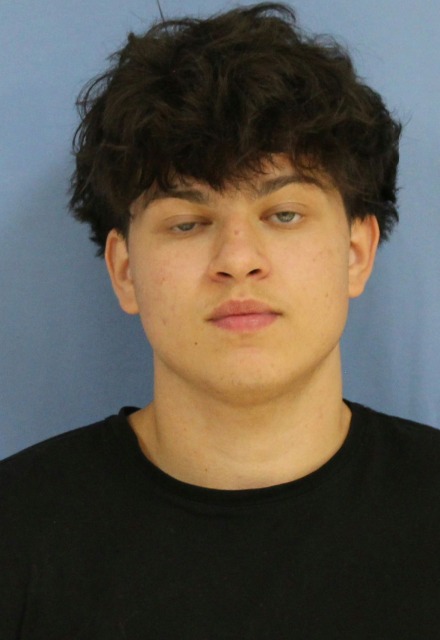Indigent defenders carry heavy load
Published 12:00 am Monday, August 10, 1998
LEONARD GRAY / L’Observateur / August 10, 1998
LAPLACE – Everyone has heard the litany, if at least from TV and movies – “You have the right to an attorney. If you cannot afford an attorney, onewill be appointed for you before questioning.”So, who are those attorneys, apparently on standby, waiting to be appointed to handle those criminal cases for people who are indigent, those who cannot afford an attorney? It’s through the Indigent Defender Board, administered in St. John theBaptist Parish by Chief Indigent Defender Richard Stricks of LaPlace, who has held the job since October 1995.
Immediate oversight of the working attorneys is carried out by the board itself, which includes Jules A. Carville III, Harold M. Keller and SylviaSteib, appointed by the judges of the 40th Judicial District in 1994.
Trending
Under state law, Stricks said, every judicial district must have a mechanism for providing attorneys for those who cannot afford them. It’sthe job of the board to manage the funds and determine which system of indigent defenders shall exist in the 40th Judicial District.
Stricks explained there are three basic systems for administering indigent defenders. One is a system of rotating attorneys, selected by lotby the Clerk of Court. Another is a contract system with the attorneys.The third is a staff of attorneys with assistants.
In St. John Parish, a combination of the last two systems is in effect, asthere is a full-time staff, including Stricks and James T. Dixon Jr., withcontracts with local attorneys for the remainder of the caseload.
And what kind of volume of cases is handled through the IDB? In 1997, indigent defenders were appointed in an estimated 700 adult felony cases. So far in 1998, there are more than 400 additional cases.And that doesn’t include the 600-plus juvenile cases in 1997.
“There are probably 25 new juvenile cases per month, per division,” Stricks said. With three divisions in the 40th Judicial District, that means75 new cases per month for juveniles alone.
With all that caseload, how many attorneys are there, handing indigent cases? There are two full-time attorneys and six contract attorneys, arrayed against the resources and manpower of District Attorney John Crum and his 11 assistant district attorneys.
Trending
Although the clients are indigent, the attorneys do get paid. The funding,Stricks said, comes from a $30,000 state grant, mostly for computerization and other support activities, from the Indigent Defender Assistance Board, an entity created by the Louisiana Supreme Court in 1993.
Primary funding, though, comes from court costs. All fines paid forfelonies, misdemeanors, traffic and bond forfeitures include a $25 fee to help finance the Indigent Defender Board.
“We have to prepare a budget on a variable income,” Stricks noted. “Wehave some savings now but only because the board is very frugal.” Headded the idea of having an annual budget is still new, having only begun that practice in 1996. Before that, it was much more loosely handled, withthe budget often in the red.
Contracted attorneys make a minimum of $12,000 per year, and there are currently two per division at the courthouse in Edgard.
“The basis of their pay is on my evaluation of their time spent, limited by constraints on the budget,” Stricks noted, at a rate of $45 per billable hour.
Also, one attorney currently works each division for juvenile cases, making a minimum of $10,000 per year on those cases.
Stricks commented some changes are also needed with the office of Indigent Defender. Currently, the office is located in an upstairs suite onDominican Drive in LaPlace.
“We need to have an office in the courthouse,” he commented, adding the attorneys often have to do their work, consulting with defendants, in the hallways.
In addition, Stricks hopes to someday see a program of indigent defenders for civil cases and a program for low-cost attorneys for people who just miss being indigent but cannot afford high-priced attorneys.
Finally, Stricks said he would like to see one full-time attorney to work with indigent defenders who does not have his or her own private practice.
“It takes a certain perspective to be an indigent defender,” Stricks said.
“People think we’re liberals who are pro-crime, but we are as concerned about crime as anyone else.”Stricks should know. Back in February 1997, his apartment wasburglarized. A suspect was arrested shortly thereafter after a deputyspotted him with a microwave oven with Stricks’ name painted on it.
Stricks had to file a motion to recuse his office from that case, which has yet to come to trial.
From time to time, a death-penalty or capital case comes to the Indigent Defender Board. Standard procedure now, as dictated by the state IndigentDefender Assistance Board, is to appoint two certified attorneys with experience handling such cases.
In St. John Parish, the only IDB attorney certified is Stricks, “so we’realways in need of one more.”Stricks, who has been in private practice since 1976, handled his first capital case in 1977. On that occasion, he hired an experienced lawyer toact as lead counsel and they split the fee.
There are valuable legal lessons to be learned through working with the IDB, Stricks continued. Young attorneys get valuable courtroom experience,dealing with the rules of evidence, expert testimony and the techniques of cross-examination.
However, more and more attorneys are being snapped up by the district attorney’s office as prosecutors.
“I could easily have been on the other side,” Stricks said, adding the philosophy is, put simply, if one wants to serve general society, one becomes a prosecutor; and if one wants to serve the individual, one becomes a defender.
“If everybody does their job right, we have justice,” Stricks concluded.
Return To News Stories





